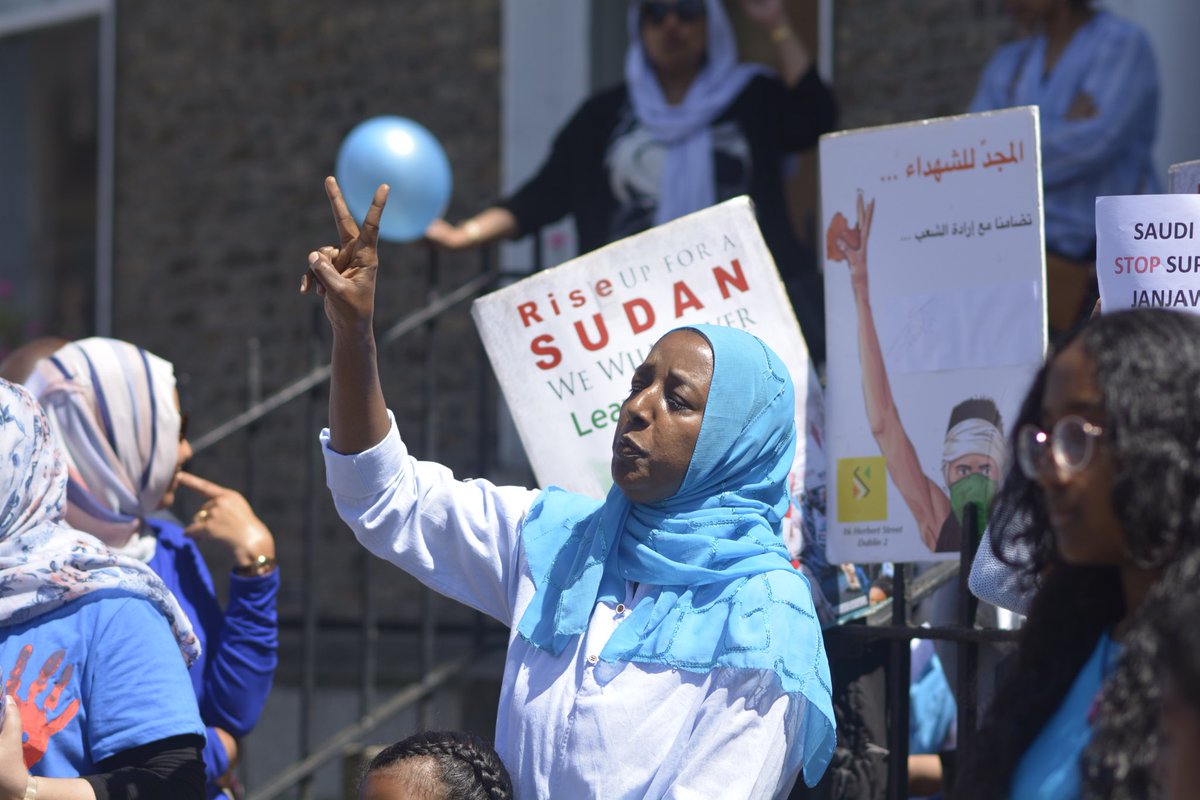Sudan has repealed a restrictive public order law that controlled how women acted and dressed in public.
On Twitter, Prime Minister Abdalla Hamdok paid tribute to women “who have endured the atrocities that resulted from the implementation of this law”.
I pay tribute to the women and youth of my country who have endured the atrocities that resulted from the implementation of this law.
— Abdalla Hamdok (@SudanPMHamdok) November 29, 2019
The country’s transitional authorities also dissolved the party of former president Omar al-Bashir.
Mr Bashir seized power in a 1989 coup and ruled for nearly 30 years before peaceful protests ousted him in April.
Sudan is currently led by a joint military and civilian council, as well as a civilian-led cabinet headed by Prime Minister Hamdok.

Both these measures were a response to key demands of the protest movement, which aims to dismantle Mr Bashir’s regime.
People celebrated in the streets of the capital Khartoum overnight after hearing about the dissolution of the National Congress Party (NCP) and the end of the public order law.
Aisha Musa, one of two women on Sudan’s new Sovereign Council, told BBC Newsday that while the former regime focused on how women dressed and acted – including preventing women from wearing trousers – it ignored their education and healthcare.
“It is about time that all this corruption stops, that all this treatment for the women of Sudan stops,” she said.
What was the public order law?
A 2017 report by two charities described the restrictions as a blend of legal and moral prohibitions “designed to exclude and intimidate women from actively participating in public life”.
They gave the authorities sweeping powers to arbitrarily control what women wore, whom they spoke to and saw, and any job they might hold – with any perceived offender facing punishment by flogging, or in rare cases stoning and even execution.
Moreover, the public order rules were kept “vague and open-ended leaving them open to exploitation as a social control tool by the authorities,” the report said.
Human rights activist Hala al-Karib told BBC Newsday that repealing the law was a “massive step” for her country, arguing the legislation enforced the old regime’s ideology, which was “based in terror and discrimination”.
Authorities had the power to “literally hunt women”, she said, and these laws disproportionately affected poorer women, women from conflict zones and people outside the capital, Khartoum.
But while she welcomed the end of the law, Ms Karib said more needed to be done to end “a very discriminatory legal framework”.
Women were at the forefront of the movement that toppled Mr Bashir.
On 25 November, Sudan held its first march in decades for the International Day for Eliminating Violence Against Women.
"As my son's coffin left, I vowed total rebellion."
Ahlam Khidir's son was killed in a peaceful anti-government protest in Sudan in 2013 – but that didn't stop her from becoming a prominent protester herself. Ahlam is one of this year's #100women.@BBC100women | #Sudan_uprising pic.twitter.com/8JTGC02HJI
— BBC News Africa (@BBCAfrica) October 25, 2019
One law for the rich…
The decision to revoke the Public Order Law is a momentous step. The authorities used it in particular to control women. Some received 40 lashes for wearing trousers in public.
The way the law was applied underlined the divisions and tensions within Sudanese society.
In recent years it was common to see rich Khartoum women wearing trousers in public – while those targeted by the morality police were often poorer women from the marginalised areas on the periphery of this vast country.
The National Congress Party, meanwhile, was a colossus, the political vehicle for a regime which tried to reshape every part of Sudanese life – and cracked down extremely hard on anybody who disagreed.
The authorities hope that dismantling the NCP will help stop the old regime from undermining the transitional government.
There is a certain irony about a transitional government set up to move the country to democracy banning a political party. But nobody other than its partisans will mourn the NCP, which is blamed for creating so much misery.
Those who led the protests – and women’s rights activists in particular – are celebrating the demise of the NCP and the law, even if they recognise this is just the start of a longer struggle to transform Sudan.
Read full report at BBC







